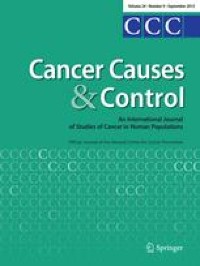Abstract
Background
Most patients with hepatocellular carcinoma (HCC) are ≥ 65 years old at diagnosis and ~ 20% present with disease amenable to curative intent surgical therapy. The aim of this study was to examine whether treatment, the demographic variables, and clinical factors could predict 5-year survival among HCC patients.
Methods
We included patients, 66 years or older, diagnosed with a first primary HCC from 1994 through 2007 in the SEER-Medicare database, and followed up until death or 31 December 2012. Curative intent treatment was defined as liver transplantation, surgery resection, or ablation. We estimated odds ratios (OR) and 95% confidence intervals (CI) for associations with 5-year survival using logistic regression.
Results
We identified 10,826 patients with HCC with mean age 75.3 (standard deviation, 6.4) years. Most were male (62.2%) and non-Hispanic white (59.7%). Overall, only 8.1% of patients were alive 5 years post-HCC diagnosis date. Among all patients that survived ≥ 5 years, 69.8% received potentially curative treatment. Conversely, patients who received potentially curative treatment represented only 15.7% of patients who survived < 5 years. Curative intent treatment was the strongest predictor for surviving ≥ 5 years (vs. none/palliative treatment; adjusted OR 8.12, 95% CI 6.90–9.64). While stage at diagnosis and comorbidities were also independently associated with ≥ 5-year survival in HCC patients, these factors did not improve discrimination between short- and long-term survivors.
Conclusions
Curative intent treatment was the strongest predictor for survival ≥ 5 years among HCC patients. Given the limited availability of liver transplant and limited eligibility for surgical resection, finding curative intent HCC therapies remain critically important.



No comments:
Post a Comment